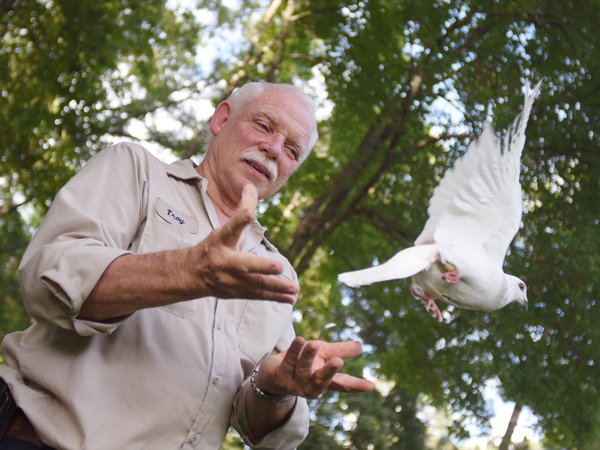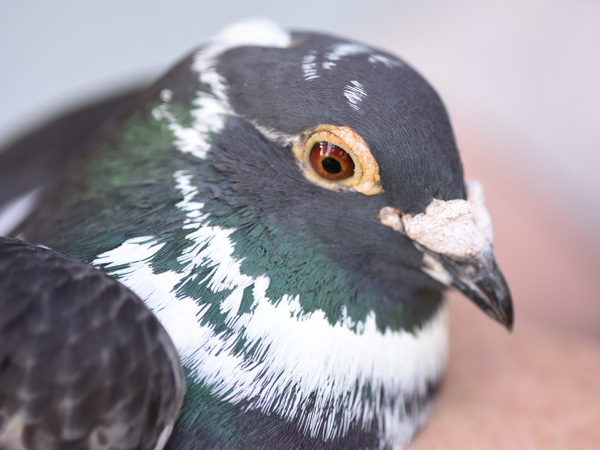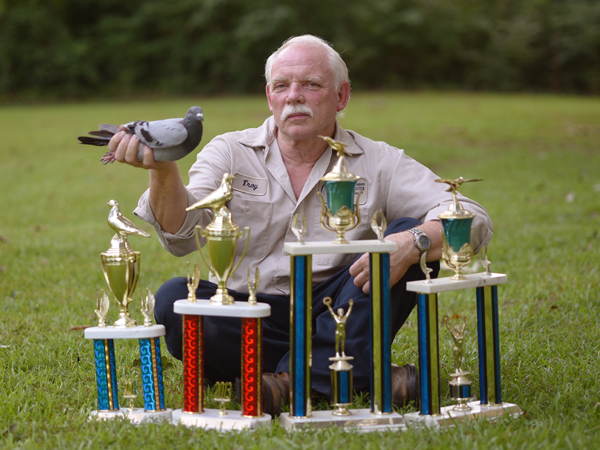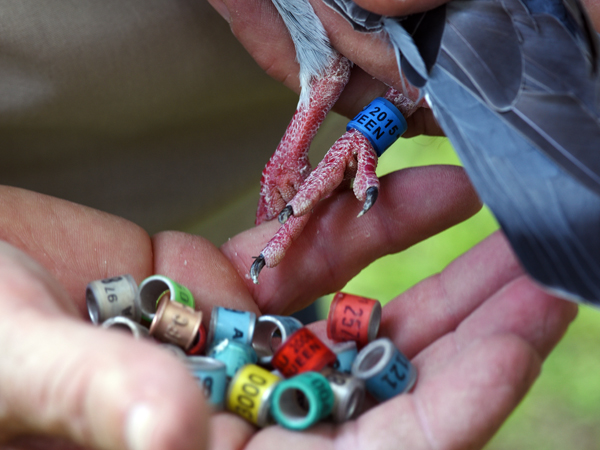People of the U: Troy Bunn

Troy Bunn has brought up pigeons who take off from Illinois right at sunrise and make it to his Florence home in time for 5 p.m. dinner.
That's about 511 miles in a day, barring inclement weather or predators such as hungry hawks.
Since he was a kid growing up in south Jackson, the University of Mississippi Medical Center employee has raised - and raced - pigeons. Bunn starts with very young birds fresh out of the nest and trains them to come home from five miles out, then 10, then 50 or 60. Their enticement to return to their owner is good feed.
"Their first race will be a 100-mile race. They graduate up to 200, 250, 300, and when they're a year old, they're not considered young birds," explained Bunn, who works for physical facilities. "The first old bird race is about 200 miles, and then it goes up to 500 miles."

Owners can win cash prizes or trophies, Bunn said. But he's been a pigeon racer and breeder because he enjoys that lifelong hobby. He raises the Sion and Janssen breeds of homing pigeons.
"It's just interesting. I love to watch them come in on race day. You never know where your bird will place, but in general, people all over the state have them come in at about the same time. The phone keeps ringing, with people saying, 'Did your bird come in yet?'
"It gets pretty intense," said Bunn, a UMMC employee for 25 years. "The more you train them, and have a good feed program and a good bloodline, the more competitive it is."
How it works: Pigeon owners ship a bird via mail to a specific U.S. location. They're released from that area at about 7 a.m. on a chosen date. The race is on to see which bird gets back to its owner first, with owners being located about the same distance from the starting point. "We race with people all across the state. We have a very wide race front, from Meridian to Vicksburg and in between," Bunn said.

Distances flown are measured by GPS, Bunn said, and "they're dead accurate. The pigeons have computer chips in the band on their leg. When they come in, they go across a pad to their pigeon loft and they're automatically clocked in."
"They don't know they're racing," Bunn said of the pigeons. "Racing season starts in September, and it generally goes about two months. Their aim is to just get home. Their speed depends on the wind and weather, which can slow them down - or, a tail wind can speed them up."
It's not uncommon, Bunn said, to lose a pigeon that strayed off course. "Sometimes, you don't hear from them again, but sometimes, someone who found them will call."
A pigeon racer in Indianapolis, for example, found a pigeon that Bunn started off in Blytheville, Ark. "He shipped him to me in the mail, and I picked him up at the Florence post office. I raced him again," Bunn said.

"I've had pigeons get mixed in with mine and come in here," he said. "Often, you can find out whose pigeon it is and call them. If they don't want it, they will tell you to just keep it."
Birds race for up to eight years, and live for up to 12, Bunn said. "If you have birds for years, and they win constantly, sometimes you can get attached to them. But not too attached, because you never know if you might not see them again. You can lose a lot of birds over the years."
Depending on whether they live in the eastern or western side of the country, racers and racing clubs belong to one of two national pigeon-racing associations, Bunn said. Mississippi is covered by the American Racing Pigeon Union, which has policies, a constitution and race rules by which members are governed.

Bunn, who has raised and raced pigeons on and off for decades, currently is raising pigeons to loan at a very young age to other owners who will train and breed them. "If I train them, they will come right back to my house," he said. If those birds win races, Bunn gets a share of the earnings. "That's why they call them the thoroughbreds of the skies," he said.
In another year or so, Bunn said, he will retire and likely will become more active in pigeon racing and increasing his stock.
"I enjoy it," he said. "There are a lot of kids who fly birds, from young children to retired people. There are tons of people out there who fly pigeons, and you might never know about it."
Nominate someone for a Front and Center feature
Do you know a UMMC faculty or staff member, student or volunteer who you think should be profiled in eCV?
The editors of the Medical Center's electronic newsletter are seeking nominations for its ongoing "Front and Center" human-interest feature.
We recognize that all of our employees are dedicated to providing their best service to the institution. The POTU articles focus on individuals who have a story to tell that would be of special interest to the newsletter's general on- and off-campus readership. And the story doesn't even have to involve health care.
Know someone who has a special hobby? Who has an interesting past? Who has demonstrated a particular talent? Who has caught your attention and you're dying to learn more? We'd like to hear about it.
If you'd like to nominate someone, click here (UMMC log-in credentials required).


